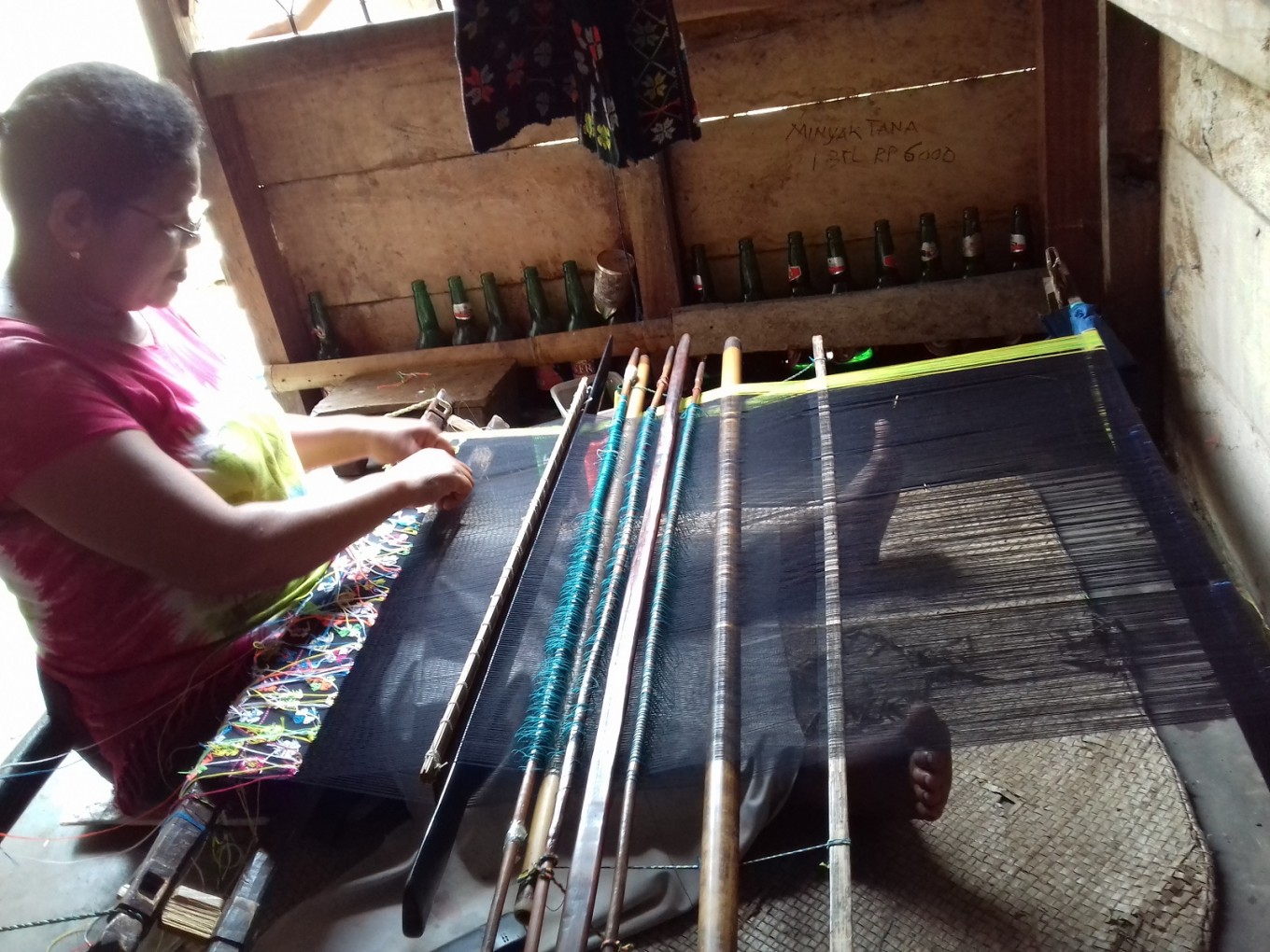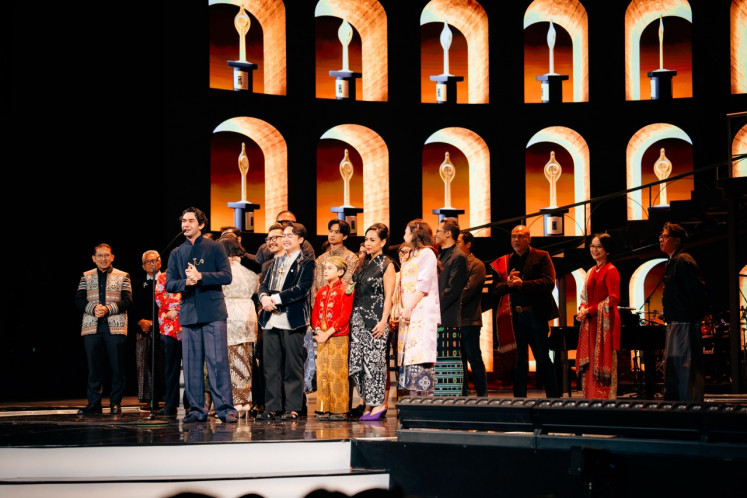Popular Reads
Top Results
Can't find what you're looking for?
View all search resultsPopular Reads
Top Results
Can't find what you're looking for?
View all search resultsTraditional fabrics now part of civil servants’ work attire in E. Nusa Tenggara
In a concerted effort to support local tailors and seamstresses, the East Nusa Tenggara administration has made the province’s traditional fabrics part of the mandatory work attire of 16,000 civil servants across 23 cities and regencies.
Change text size
Gift Premium Articles
to Anyone
In a concerted effort to support local tailors and seamstresses, the East Nusa Tenggara administration has made the province’s traditional fabrics part of the mandatory work attire of 16,000 civil servants across 23 cities and regencies.
The historic decision will also see East Nusa Tenggara Governor Viktor Bungtilu Laiskodat open a new marketplace for traditional fabrics to improve the economy among local tailors and seamstresses, especially those from remote regions.
East Nusa Tenggara administration spokesman Marius Jelamu said the governor aimed to respect the local heritage by incorporating the province’s traditional fabrics in civil servants’ everyday attire.
Furthermore, he said the governor had also seen potential in the province’s traditional fabrics as profitable exports to the international market.
“The East Nusa Tenggara administration has great respect for local tailor and seamstresses who have kept our heritage alive after all these years. Because of this, the administration aims to empower them through its momentous policy,” Marius told The Jakarta Post on Tuesday.
He went on to say that the administration expected to sell each piece of traditional fabric for at least Rp 1 million (US$ 70.24) in its proposed marketplace. Assuming each of the region’s 16,000 civil servants purchases one piece of fabric, he said the administration expected the market to earn a total of Rp 16 billion.
“We want our traditional fabrics to be regarded as prestigious pieces of clothing in contemporary East Nusa Tenggara, just as the Japanese traditional fabrics are still viewed as elegant pieces of clothing in modern-day Japan,” Marius said, adding that wearing traditional fabrics would serve as a form of cultural bureaucracy.
Read also: Flores’ ‘ikat’ brings together Muslim, Christian women
West Manggarai Deputy Regent Maria Geong said civil servants in the regency were obligated to wear traditional fabrics every Tuesday and Wednesday.
“West Manggarai is among the top tourist destinations in East Nusa Tenggara. The decision to make traditional fabrics part of the civil servants’ mandatory work attire could prove beneficial for the regency’s cultural promotion,” she told the Post.
She said West Manggarai’s traditional fabrics had previously been showcased in various fashion shows at schools in the regency. She added that the traditional fabrics were also officially recognized by the Indonesian World Records Museum (MURI) in 2013.
Meanwhile, East Manggarai Regent Agas Andreas said he had issued Regional Decree No. 6/2019 which officially makes the regency’s traditional fabrics part of the mandatory civil servant’s work attire every Tuesday.
“The East Manggarai regency is fully prepared for the governor’s policy,” Agas said, adding that the regency was home to thriving small and medium enterprises that produced traditional fabrics.
Maria Daflora Echo, a civil servant working for the East Manggarai administration, said she appreciated the governor’s policy to raise awareness of local culture.
“I’m proud to wear traditional fabric from East Manggarai,” Maria said.
In addition to civil servants, representatives from local churches also expressed enthusiasm for the opportunity to showcase traditional fabrics in their everyday activities.
Marten Chen, head of priests center of the Ruteng Diocese in Flores, said the Catholic church within the diocese had made a similar instruction among church representatives two years ago.
“The Catholic church in the Ruteng Diocese supports local culture by making traditional fabrics part of the church representatives’ attire during religious ceremonies in the third week of every month,” Marten said. (rfa/mut)











